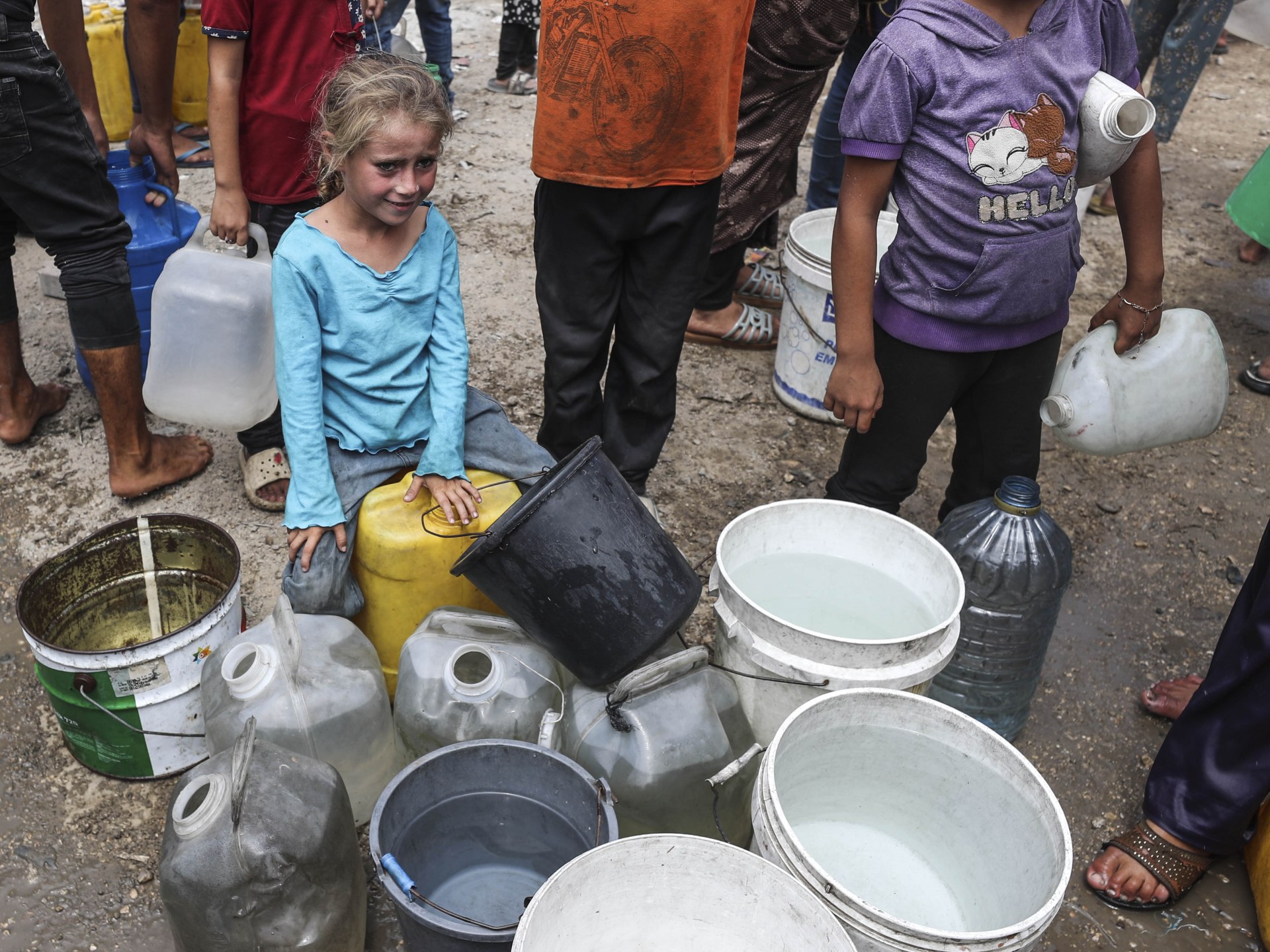Palestinians in Gaza have been displaced numerous times, and many of them have died from starvation brought on by Israel. The enclave’s residents are also in danger of experiencing an unprecedented water crisis, which is also taking place.
Before nearly 22 months of Israeli bombardment and ground operations that had already harmed more than 80% of the territory’s water infrastructure, Gaza was already experiencing a water crisis.
“Sometimes, I experience internal body thinning.” Um Nidal Abu Nahl, a mother of four in Gaza City, claimed that Thirst is stealing all of my energy and that of my children.
Water trucks occasionally arrive at residents and NGOs place taps in refugee camps, but that is not all.
After the Israeli water company Mekorot cut off supplies in northern Gaza early in the conflict, Israel reconnected some of the country’s water mains, but residents claim the water is still not flowing.
The water distribution network in Gaza has been severely damaged by the war, according to local authorities.
According to Asem Alnabih, a spokesman for Gaza City, Mekorot’s network has been shut down for almost two weeks.
Some wells, which supplied water to some needs prior to the war, have also experienced damage, and some have been contaminated by untreated sewage.
Many wells in Gaza are inaccessible simply because they are in areas where Israeli forces are battling, too close to them, or forced to flee.
Since Israel cut Gaza’s power supply, energy has been running on electric pumps in wells.
The pumps could be powered by generators, but hospitals are prioritized because of the limited fuel deliveries.
Except for one site, which reopened last week after Israel restored its electricity supply, all desalination plants in Gaza are no longer operational.
Alnabih described the bleak infrastructure situation.
More than 75% of wells are inoperable, 85 percent of public works equipment has been damaged, 100 000 meters (62 miles) of water mains have been harmed, and 200 000 meters (124 miles) of sewage lines are unusable.
250 000 tonnes of rubbish are clogging the streets, and the pumping stations are shut down.
Hunderttausende of people are still attempting to extract groundwater directly from wells in an effort to find water.
However, the aquifer at the coast of Gaza is naturally brackish and far below the recommended salinity level for potable water.
UNICEF issued a warning that Gaza’s groundwater was nearly entirely unfit for consumption in 2021.
Some Palestinians mistakenly believe brackish water to be free of bacteria because it is so hard to find clean water.
Aid workers in Gaza have repeatedly warned residents that kidney damage will always result from their initial discomfort.
The water crisis in Gaza has received less media coverage than the country’s current hunger crisis, but its consequences are equally as severe.
Water should never be used for political purposes, according to Rosalia Bollen, a UNICEF spokeswoman. She said, “There is a severe lack of drinking water, but it is very difficult to quantify it.”
Source: Aljazeera

Leave a Reply